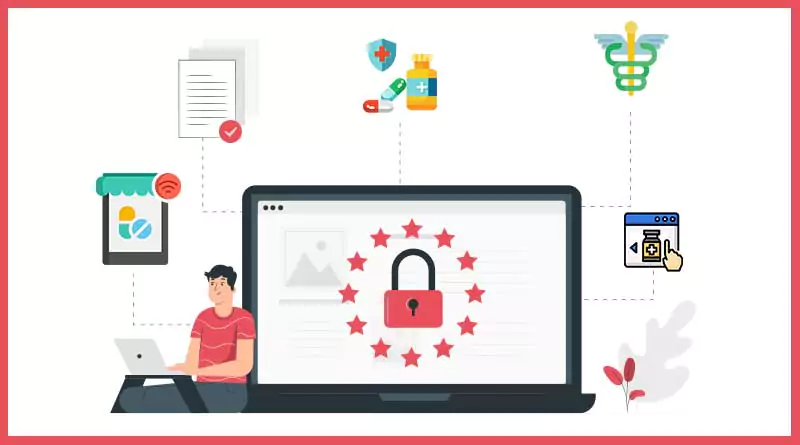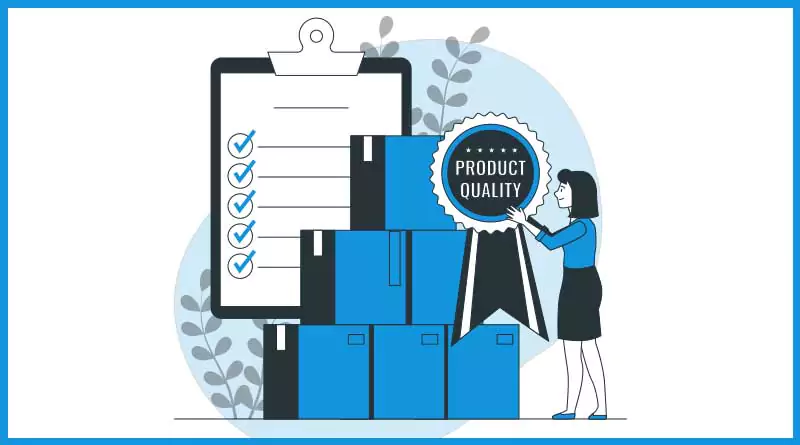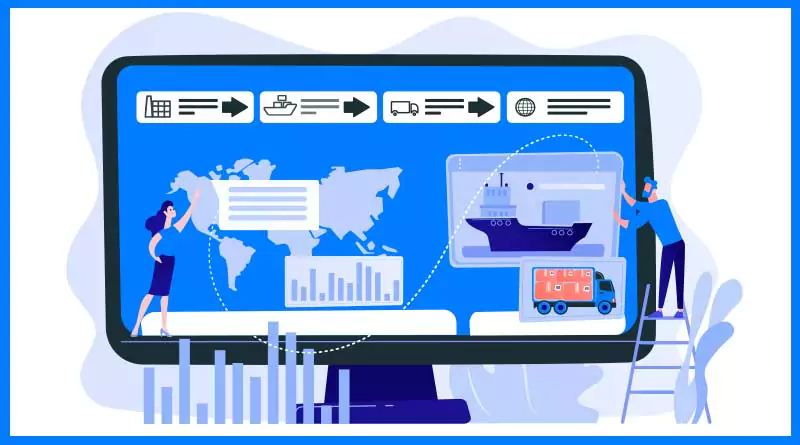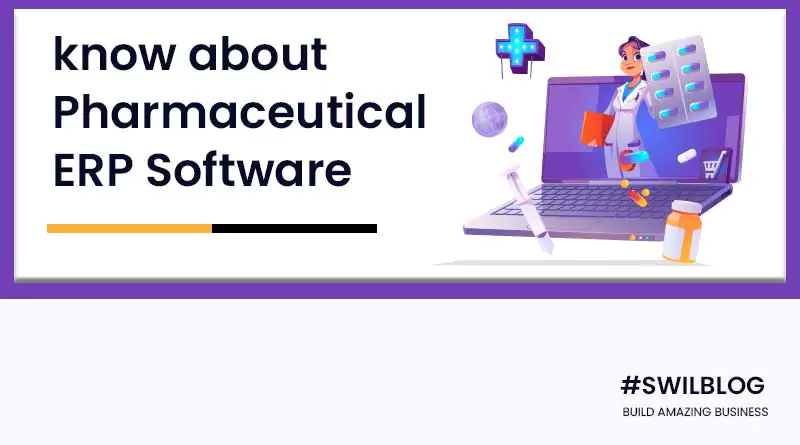No matter what business you operate in, deciding which accounting or ERP system will be the greatest fit for your company is a difficult task. Pharma businesses must continue to deliver high-quality products while maintaining strict security. Your company’s success depends on you choosing the proper ERP purchase. Without it, you’ll never be able to comply with all applicable rules. Or moreover, you will not be able to maintain the degree of efficiency required to make a profit in an industry where margins are razor-thin.
Benefits of ERP Software for Pharmaceuticals
- By streamlining all processes, it aids in achieving increased productivity.
- Accounting for all types of sales and purchases is simple.
- Maintains inventory control and obtains correct operating results.
- Saves time and money on operations.
- Monitors the distribution of drug items.
- Improved customer service.
- Extensive reporting – ERP in the pharmaceutical industry allows you to create many reports that show you a list of all of your company’s transactions.
- With the best ERP for the pharmaceutical industry, you can make better business decisions from any device, at any time.
- Clear visibility on cost management throughout the industry.
- Accounting will easily handle all types of customer & vendor bills.

Features to look for when you are choosing an ERP software for your pharmaceutical company
Index
- Inventory Management
- Security
- Quality Control
- Process Tracking
- Customization
- Regulatory Compliance and Control
- Formulation and Pre-formulation Management
- Automated Admin Tasks
- Transparency and Traceability
- Effective Product Costing
- Managing Variability and Predicting Scalability
- Conclusion
1. Inventory management

- In your software, ‘First Expiring, First Out’ (FEFO) is a must-have method to inventory management. It ensures that things do not lose their efficiency due to aging, and that they do not sit in storage and expire.
- The ERP software can assist in determining when and how much drug you need to order from vendors and deliver.
2. Security

- In the pharmaceutical industry, approval and validation are critical steps in ensuring that every aspect of the supply chain runs smoothly and efficiently. Each employee’s e-signature is not only readable but also distinctive.
- It requires either a password or a user code for validation.
- Check to see if the ERP you’re considering has built-in e-signature features and the flexibility to customize them.
3. Quality Control

- In process manufacturing, stability, quality, and safety are all critical considerations, especially when it comes to pharmaceuticals. Compliance is one of the most difficult tasks a pharmaceutical firm faces, and there can be no compromises.
- Quality management and control are included in ERP software. It encompasses the entire process, from raw material procurement to production and post-manufacturing.
4. Process Tracking

- Process monitoring and quality assurance are inextricably linked. The progress of a product in the receipt is also monitored by tracing its life cycle for QC purposes.
- Because of the contact between these two sectors, ingredient traceability is possible, as well as visibility when problems arise and a recall is necessary.
5. Customization

- Although many pharmaceutical ERP capabilities should be built-in, the system be customized. Regulations, business processes, and your ERP should all evolve.
- Many Pharma ERP software allows for customization to meet your company’s specific needs, and you can make modifications at any time, not only at the start of the implementation.
6. Regulatory Compliance and Control

- For all pharmaceutical companies, regulatory compliance is the most crucial factor. To maintain worldwide standards, it is critical to adhere to safety and healthcare norms.
- Pharmaceutical ERP software has the potential to be a game-changer. It provides a customizable user interface, centralized networking capabilities, and automation capabilities.
- This enables pharma businesses to keep up with changing rules and regulations, as well as assist manufacturers in tracking and remaining compliant with these procedures.
7. Formulation and Pre-formulation Management

- To manufacture a batch, the drug’s manufacturing process entails precise formulation and monitoring of raw material constituents and end product yields.
- The pre-formulation stage entails establishing medication production techniques, phases, and quantities, among other things.
- Pharma businesses can ensure automation of these formulations with a solid pharma manufacturing software, which eliminates the need to monitor manufacturing constantly and eliminates the risk of human error.
8. Automated Admin Tasks

- Software can automate admin tasks such as reporting and invoice writing for you.
- Regulatory report writing modules should be flexible to handle a range of requirements and documents. Automating these office procedures saves everyone time and eliminates the possibility of errors.
9. Transparency and Traceability

- Any manufacturer must keep a careful eye on every aspect of their process in order to maintain peak efficiency.
- This is never more evident than in the pharmaceutical sector. You need to know exactly what happens in your manufacturing plant if something goes wrong with one of your goods.
- As a result, your ERP system must enable you to track ingredients all the way from procurement to final sale.
10. Effective Product Costing

- Drug costing is constrained by many elements, including raw material master management, procurement costs, supply chain tracking, and vendor cost management, to name a few.
- An ERP system provides centralized data access and establishes a linked network between multiple activities to promote concurrency.
- Well-captured data aids in the efficient definition of product costs, and any changes can be reflected in the system, allowing finance to respond properly.
11. Managing Variability and Predicting Scalability

- Managing supply chain variability, understanding its sources, and obtaining control over release failures are all part of the medication manufacturing process.
- Another issue is forecasting the scalability of product demand in order to change manufacturing capabilities effectively and capacities. Both of these require effective communication among many operations as well as the utilization of data to anticipate change.
- Companies may achieve these aims through predictive analysis, data crunching, and supply chain visibility with a strong ERP for the pharmaceutical business.
Conclusion
Industrial dynamics are changing rapidly, and the pharmaceutical industry must keep up to stay relevant. Pharmaceutical firms can take the right steps in the areas of digitization, automation, and artificial intelligence with the help of a cost-effective and flexible ERP system. A Pharmaceutical ERP software could have an almost limitless number of functionalities. We recommend that you start by making a list of features that will help your pharma company’s particular niches the most, and then continue from there.








